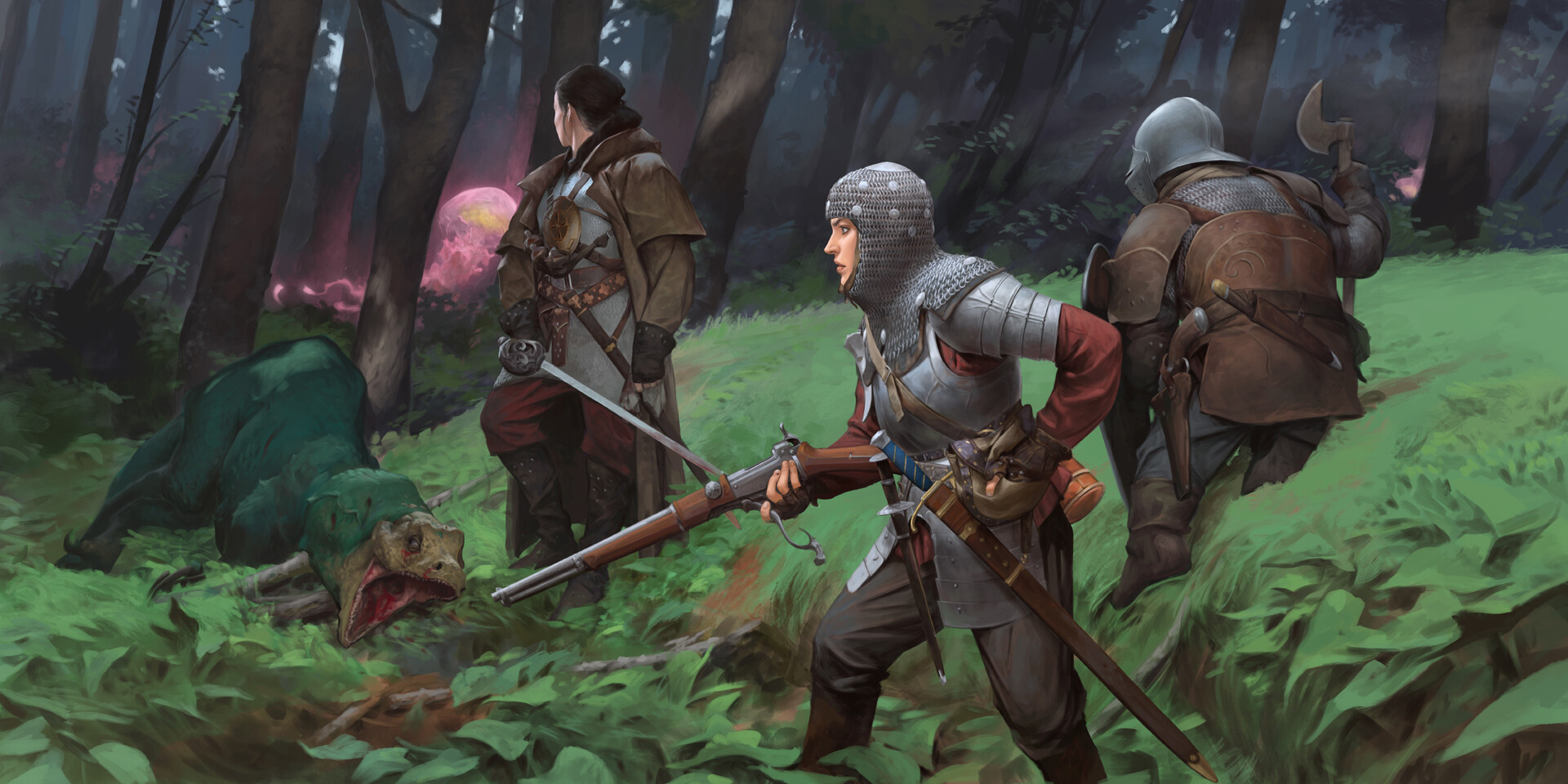I find that I love the free kriegsspiel model not because it is simple (though that is a large plus) but because it all is about intuition and honesty with subject matter. In general, storygames and mainstream modern RPGs and even a swath of the old school community don't appeal to me because portions of the experience are deliberately gamified when they could just be role-played. I've said elsewhere that an adventure game needs little more than interesting choices regarding interesting people amidst interesting locales.
You've met a person, right? How do you talk to them? Now talk to a person inside of a game in the same way. Context, motivation, and the assumptions of the setting guide your actions and approach, not mechanization. I appreciate arguments made that certain rules and precedures help to emulate genre or setting, but my counter is that those methods are redundant, as even with passing communal knowledge of the setting at the table, everyone can reasonably play anything with imagination and conversation. Rules can be helpful as a framework, but they are not necessary for play. All you need is a world in which to act.
My challenge for you all is thus:
- Pick a genre, setting, or time period
- Write one or two paragraphs on context
- Produce one page of random tables
- Give advice on tropes and how to use them
This is how I put together
Galaxy Far Away. Humor me: anyone with even a tangential exposure to pop culture has either seen or knows the gist of
Star Wars: A New Hope. Close your eyes and imagine the tropes.
There is an evil human empire with smart uniforms and bureaucracy. Stormtroopers are ubiquitous but only effective in numbers. Common people are either disinterested outliers minding their own business or enterprising vagabonds looking to be a big fish in a small pond. Organized crime is everywhere. Almost everything is janked together, rusting, or smeared with dirt. There is space magic, but it's mostly a philosophical matter and the vast majority of folks have no exposure to it or its lightsaber-wielding practitioners. There are thousands of sentient species, but they all commingle. 500 credits will buy you a cheap blaster.
I followed that with random tables for gear, intrigue, rumors, contraband, complications, and rivals. The dice and mechanics are effectively invisible, with the destiny/force token bit little more than a meta ruling. How to play: go do things--let the tropes be your guide.
...
But instead of Star Wars, you could pick Earthsea by Ursula LeGuin, or My Neighbor Totoro by Hiyao Miyazaki, or A Portrait of the Artist as A Young Man by James Joyce, or Final Fantasy 6, or the concept of 18th century fur trapping in Canada, or the brief context of pre-isolationist China adjacent to Zheng He, or [insert Saturday morning cartoon], or [insert that one brochure you read one time in a doctor's office], or [insert early hydraulic society's first steps]... you get the idea.
So, bloggers and referees and players and tinkerers, give the above formula a shot and let me know about it. Let's call it at three pages tops.






